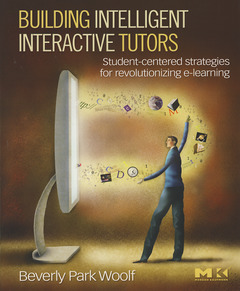Description
Building Intelligent Interactive Tutors
Student-centered Strategies for Revolutionizing E-learning
Author: Woolf Beverly Park
Language: English
Subject for Building Intelligent Interactive Tutors:
480 p. · 19x23.3 cm · Paperback
Out of Print
Description
/li>Contents
/li>Readership
/li>Comment
/li>
Building Intelligent Interactive Tutors discusses educational systems that assess a student's knowledge and are adaptive to a student's learning needs.
The impact of computers has not been generally felt in education due to lack of hardware, teacher training, and sophisticated software. and because current instructional software is neither truly responsive to student needs nor flexible enough to emulate teaching. Dr. Woolf taps into 20 years of research on intelligent tutors to bring designers and developers a broad range of issues and methods that produce the best intelligent learning environments possible, whether for classroom or life-long learning.
The book describes multidisciplinary approaches to using computers for teaching, reports on research, development, and real-world experiences, and discusses intelligent tutors, web-based learning systems, adaptive learning systems, intelligent agents and intelligent multimedia.
It is recommended for professionals, graduate students, and others in computer science and educational technology who are developing online tutoring systems to support e-learning, and who want to build intelligence into the system.
1. Introduction
2. Features
PART II: REPRESENTATION, REASONING AND ASSESSMENT
3. Student Knowledge
4. Tutoring Knowledge
5. Communication Knowledge
6. Evaluation of Tutors
PART III: TECHNOLOGIES AND ENVIRONMENTS
7. Machine Learning
8. Inquiry and Collaboration Tutors
9. Web-based Tutors
10. Future view
- Combines both theory and practice to offer most in-depth and up-to-date treatment of intelligent tutoring systems available
- Presents powerful drivers of virtual teaching systems, including cognitive science, artificial intelligence, and the Internet
- Features algorithmic material that enables programmers and researchers to design building components and intelligent systems

